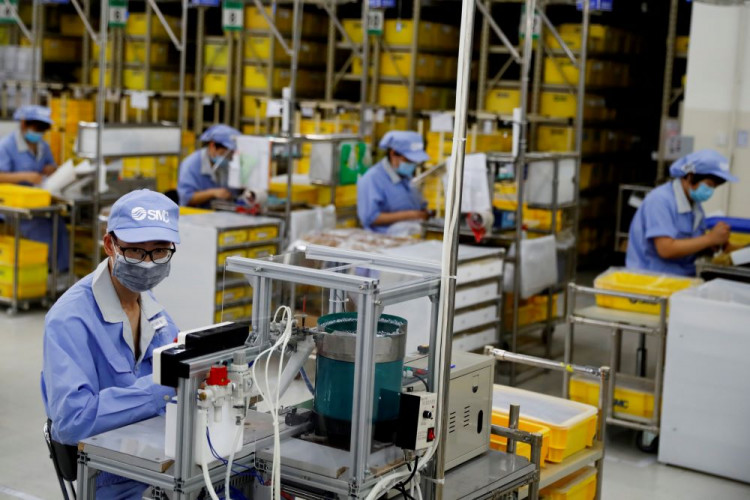China's economic recovery faltered in January, with factory activity contracting for the first time in four months, raising questions about the effectiveness of Beijing's stimulus measures and the prospects for sustained growth.
The National Bureau of Statistics reported Monday that the official manufacturing purchasing managers' index (PMI) fell to 49.1 in January from 50.1 in December. The decline, which dipped below the 50-point threshold that separates expansion from contraction, reflects a slowdown in production and new orders. Non-manufacturing activity, which includes construction and services, also saw a sharp decline, with its PMI dropping to 50.2 from 52.2.
While the Lunar New Year holidays, beginning January 30, are traditionally a period of reduced economic activity as millions of workers return to their hometowns, economists noted that the slowdown exceeded expectations. "The extent of decline is beyond our expectation," said Raymond Yeung, chief economist for Greater China at Australia & New Zealand Banking Group.
Economists and analysts pointed to deeper structural challenges beyond the seasonal lull. Despite a late-2024 surge in exports and stimulus measures that helped China meet its 5% growth target for the year, the economy remains vulnerable to weak domestic demand, a struggling property sector, and deflationary pressures.
"The first major read on China's economy at the start of 2025 is alarming - growth lost momentum even after intensified stimulus toward the end of last year," Bloomberg Economics wrote in an analysis. "The surprisingly weak PMIs underline the urgency for stronger policy support."
The PMI figures come amid rising global trade tensions, with U.S. President Donald Trump renewing threats to impose higher tariffs on Chinese imports. Trade headwinds, combined with sluggish domestic consumption and a prolonged real estate crisis, have created a precarious economic landscape.
Carlos Casanova, senior Asia economist at Union Bancaire Privée, warned that without a more aggressive fiscal and monetary policy response, China risks a sharper economic deceleration in 2025. "It will be hard for China to prevent a sharper economic deceleration," he said, advocating for increased public borrowing and spending.
President Xi Jinping struck an optimistic tone on Monday, vowing to strengthen the economic recovery through reforms and supportive policies. However, doubts remain over whether Beijing's measures will be sufficient to counter deflationary pressures and revive confidence among consumers and private enterprises.
China's central bank has thus far prioritized stabilizing the yuan over monetary easing, raising questions about the government's commitment to bold policy intervention. While interest rate cuts and reductions in banks' reserve requirement ratios remain possible, analysts caution that these measures may not be enough to spark significant economic growth.
The latest data also highlighted challenges in the construction sector, which saw a decline in activity despite fiscal support aimed at boosting infrastructure projects. Zichun Huang of Capital Economics noted that these measures "may be struggling to offset the broader pressures weighing on construction activity."





